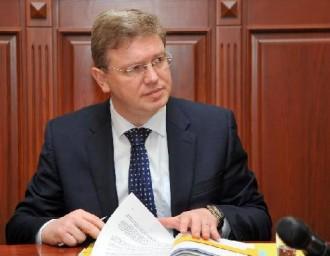Štefan Füle: human rights are of top priority on the EU agenda

Brussels is worried about the conditions of prisoners, a press statement that follows the meeting of Commissioner Štefan Füle with the wives of two political prisoners in Belarus says.
European efforts to secure the release and rehabilitation of political prisoners have been the centre of a meeting with the wives of two of the political prisoners. Štefan Füle met Marina Adamovich, the wife of the former presidential candidate Mikalay Statkevich and Natalia Pinchuk, the wife of Ales Bialiatski, president of the human rights organisation “Viasna”. Both women have been waiting for their husbands to come out of prison for more than a year already. Their meeting took place in Brussels on November, 7, and soon after a press statement by Štefan Füle was published.
I fully understand the personal suffering of your husbands and your families," Štefan Füle said.
The Commissioner called on the Belarusian authorities “to immediately and unconditionally release and rehabilitate all political prisoners” and “to refrain from exercising pressure on and subjecting political prisoners to inhumane conditions."
Štefan Füle emphasized that any positive change in the EU's relations with the Belarusian authorities depends on this issue.
In the discussion with Adamovich and Pinchuk he recalled the EU's support for the cause of the political prisoners fighting for democratic values.
-
03.01
-
07.10
-
22.09
-
17.08
-
12.08
-
30.09








































